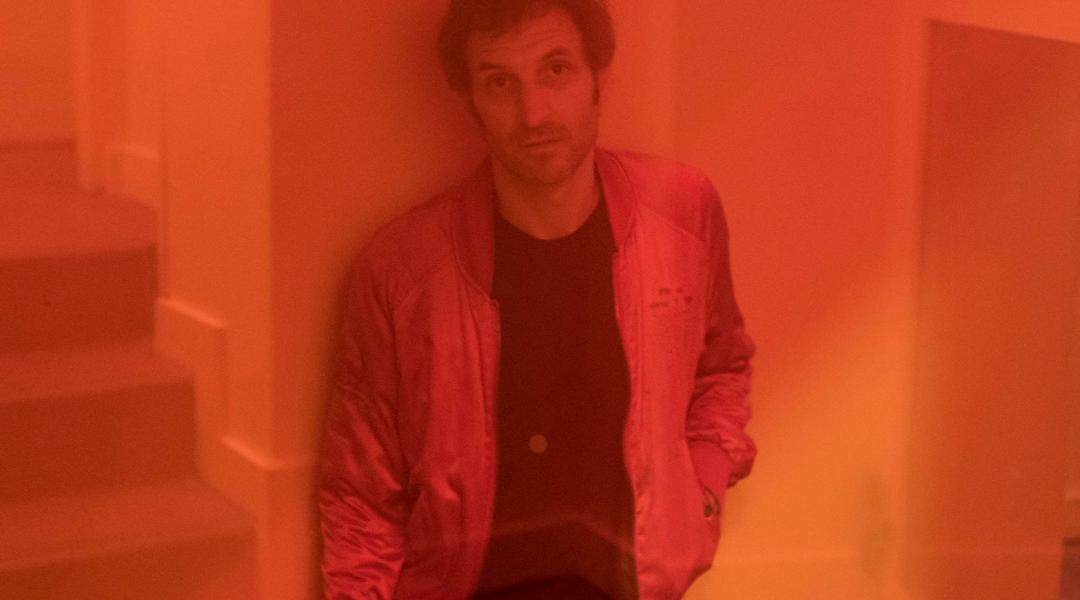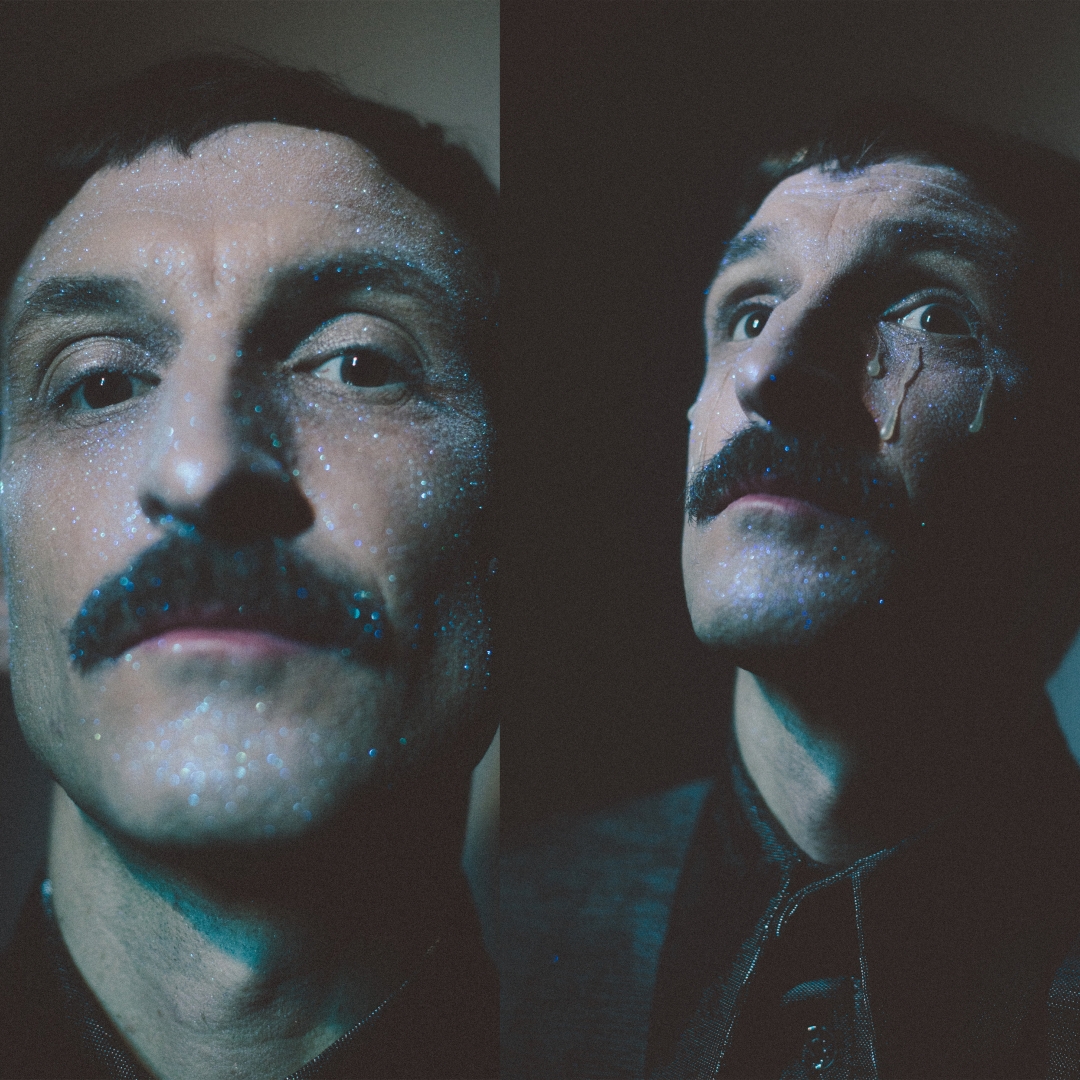Julián Villagrán
Back to the 90s

This isn’t an actor who also sings, but a musician that has made a career out of acting. Villagrán launches his first album, influenced by rave music and independent British rock.
Julián Villagrán (Cádiz, 1973) is making an old dream come true: making his own music and promoting it. Awarded the Goya Award for Best Supporting Actor in 2012 for his role in Unit 7, Villagrán is also popular amongst fans of series such as Arde Madrid or The Plague.
Today, under the stage name Asunción, he’s releasing the songs he’s written in the last few years. For now, he’s published an album with the same name consisting of four songs, three originals and a cover of the band Charol. An EP that won’t be alone for long, because as he says himself, singing is becoming more and more fulfilling for him. As well as having the opportunity to see him onstage around the country, his followers can also see him in the film Operación Camarón and in the fourth season of The Ministry of Time.
How long have you been playing music?
I started playing the guitar when I was 15 or 16, although up until now I only played covers. I’d DJ’ed at raves and written electronic music for soundtracks. I’d never written songs and really fancied it. A few years ago, I started writing songs as an experiment. The idea was to create something between pop and rock, but because I was on my own, I started trying out what different drums would sound like. The project took shape naturally. The result has sort of been my musical life story in a nutshell.
If you had to define the music you make, what would you say?
My intention is none other than to make pop songs, but they inevitably become tainted with my rock side, that’s also a bit punk and manifests in the way I play the guitar, which is quite dirty. And then there’s the influence of the electronic music that I listened to in the 90s which struck a chord when I discovered it.
Was it that important to you?
It was very new. In Andalusia, raves had a huge influence. I think this is due to the fact that English tourists came to Torremolinos and Marbella, the same ones that came to sell CDs to DJs in Seville. The music scene in Seville grew at the same time as in London and Manchester; drum’n’bass, breakbeats, the first Prodigy albums... I experienced that intensely and it left its mark.
You could say that you’re an actor that was already a musician.
I’m not sure what came first, to me honest! Since I was little I did plays at school; at home we had tons of vinyl, my father played the guitar. When I was twelve, I started playing too and by fifteen I already had a band. It all developed at the same time. Destiny has led me to work as an actor and that’s the path I’ve chosen, but I’ve always made music. The thing is, until now, I hadn’t considered taking it seriously. Asunción has been in the making for five or six years, but I gave the project a name a year ago, when I started playing live.
Does acting in front of the cameras have anything to do with being onstage?
It’s similar in that there’s a stage and you’re giving a performance. When I act, I wear a shield because I’m playing a role that isn’t me, under a director’s instructions and with a text written by a scriptwriter. You’re exposed because you’re up there, but at the end of the day it’s not really me. With Asunción it’s different. The lyrics are inspired by things that have happened to me, experiences or images from my personal life. Showing that in public makes me feel more exposed than when I’m acting. They’re not exclusively personal stories, there’s also fiction, but sometimes I try to express myself more poetically. I’m searching, learning.
“My lyrics are inspired by experiences or images from my personal life. Showing that in public makes me feel more exposed than when I’m acting”
You’ve said before that actors are insecure people. Does making music help you to fight this insecurity?
We’re insecure because our work is always subjected to other people’s opinions, we work with our bodies and voices, which makes us feel quite exposed. Also, we hope for approval from the producers, the audience, which means we’re always on the lookout for the opinions of others. In my case, I’ve been acting for many years and I think I’ve learnt to deal with it so that it doesn’t throw me off balance. It’s also true that music doesn’t help to compensate this feeling, because when I’m onstage I feel very exposed and sometimes nervous. But I’m feeling more and more secure about cultivating my facet as a musician.

Actor and musician Julián Villagrán in promotional images of his Asunción project debut album. © Courtesy of La Trinchera
Does being a popular actor help you to make music or can it be a disadvantage?
It can be a double-edged sword. I’m not the most famous actor in Spain, but I’m kind of popular because of some of the work that I’ve done. This can help to promote my songs in the media. However, it can also generate certain prejudice like, “what’s this actor who wants to be a musician going to do now”. I try to separate both sides, although it’s inevitable that I get asked about my work as an actor.
Since you mention it, have any roles struck a chord with you?
There are certain roles that I feel attached to, but it’d be impossible to choose just one. Maybe Carlos contra el mundo, which was my first leading role that I was really committed to and that opened many doors for me. Under the Stars gave me my first Goya nomination; also, the film crew were really special, and it was well received by the audience. And, of course, Unit 7, which won me the Goya Award for Best Supporting Actor and was also a turning point for almost everyone that worked on it. We were all from Seville and, today, many of them are well-renowned and highly sought-after within the industry.
And on TV?
The Ministry of Time, of course, which has given me the character of Velázquez, who is so much fun and which I’ve had such a great time with. I think he connected well with the audience and that means that he feels the affection from the audience, and I do too.
“Above all, I believe in hard work, persistence and discipline. Talent isn't everything”
As an actor, would you say that, right now, series are taking up the space that up until recently belonged to film?
You could say that. Right now, getting a film going is a monumental task. It’s hard to bring together the money to film it, make sure it’s well distributed and promoted. All this revolution brought forward by TV platforms is giving the sector a lot of work and, sometimes, without interfering with content. And that implies a freedom when facing fiction that didn't exist in local fiction for TV. There are series like Vergüenza, Perfect Life, The Plague, Arde Madrid... They’re very freeing series that have worked well and that also give less-known actors a chance to work. I think we’re riding high at the moment.
What’s talent for you?
I believe in innate talent to develop any creative endeavour, but talent itself is useless without consistency. Above all, I believe in hard work, persistence and discipline. Talent isn't everything.


